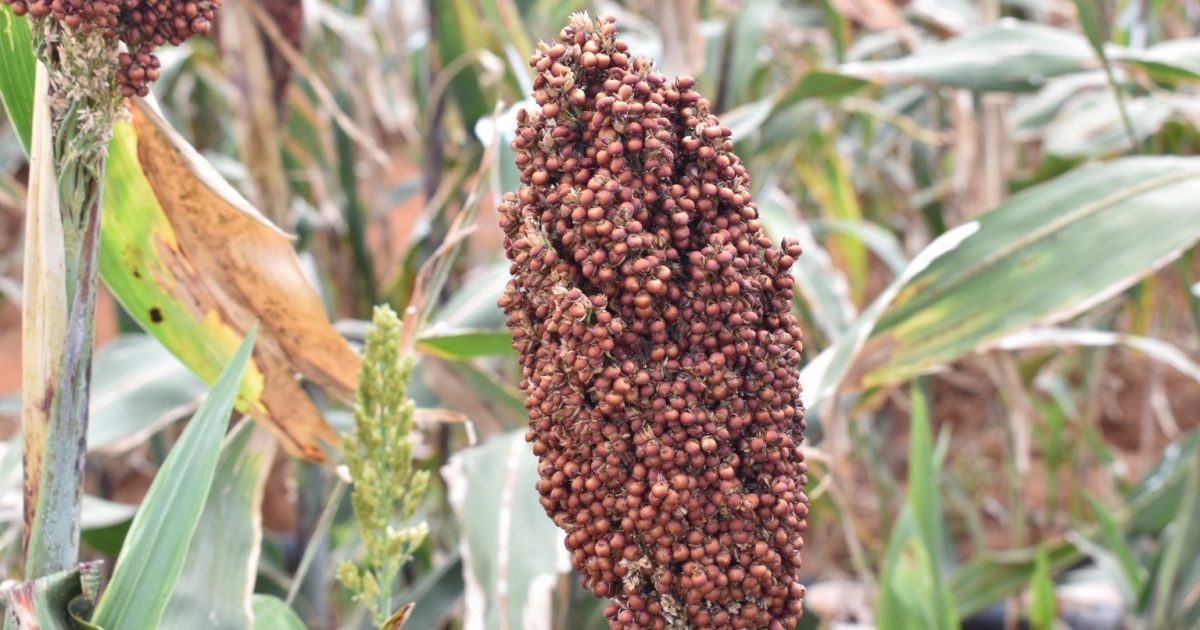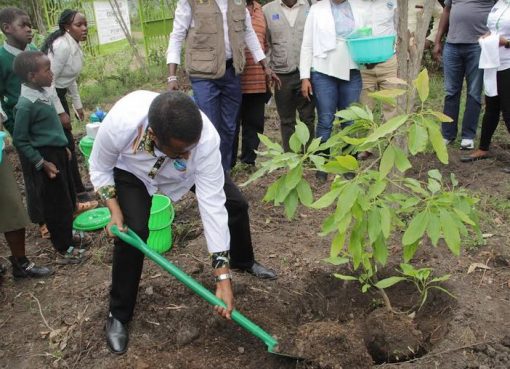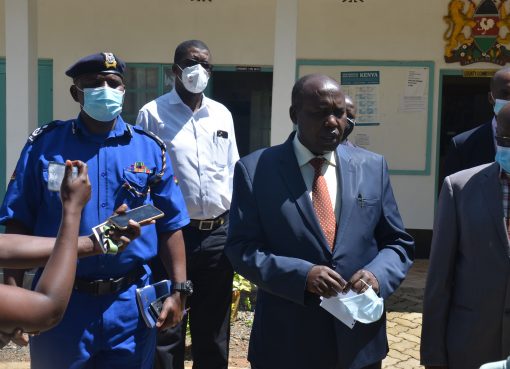Farmers have been urged to adopt new technologies, Innovations and management practices emanating from research.
Kenya Agricultural Livestock Research Organization (KALRO) has been spearheading diversification into the production and promoting the biodiversity of crops to support farmers to mitigate Climate change and variability which remains a threat.
Speaking at KALRO Centre in Kiboko in Makueni when Marking the World Food Day, the Director General Dr Eliud Kireger said they were developing climate smart crop varieties and technologies to mitigate changing climatic conditions
In a speech read on his behalf by the KALRO Director Livestock, Kipkemoi Changwony the DG said that mid this year the Institute released new crop varieties for the region including Teff which is a traditional grain that is rich in fiber and protein mineral.
“ As we celebrate the World Food Day and also 2023 ,a year being declared as the ‘International Year of Millets’ by the United Nations ,it is well placed to enhance awareness of the place of millet in food security and nutrition” ,he said

Dr. Kigerer added that the trials being undertaken in KALRO Kiboko seeks to raise public awareness about millet as the world’s emerging smart food, especially today under the threats of climate change and variability..
‘Dry land crop research remain our priority and indeed Millets have huge opportunity for enhancing resilience and bring transformations in food and nutrition security. Indeed, it is nutrition and climate smartness all in one crop”, he said .
Dr. Kireger encouraged farmers to visit KALRO Centre’s to secure appropriate seedlings for planting especially during the forecasted rains.
Dr. Rebbie Harawa, Director International Crops Research Institute for Semi-Arid Tropics, (ICRISAT ) Africa said the 2023 World Food Day under the comparing theme, water is life, water is food, leave no one behind resonates deeply with their mission and values as they have dedicated themselves to enhancing food security,
She noted that over the last 50 years ICRISAT together with partners have been working tirelessly to address the unique challenges of the dry land ecologies and making sure that food is not just calories, but it’s nutritious and healthy food.
“ Millet and other crops such as sorghum are critical crops that are not just resilient to drought but loaded with nutrients. I think we need to become healthier and these sorghum millet crops, are loaded with other micronutrients. We are talking about calcium, zinc and iron”, she said
Having subsistence food to feed families is paramount and this particular farming has become productive, Dr. Harawa said adding that every time we have one farmer who is successful, there should be millions of other farmers behind him to actually be the people that are going to be pioneering or charting this journey of bringing resilience to our dry land agro ecologies.”, she said
Dr. Harawa called upon farmers to challenge the stakeholders by requesting for the varieties they would want in their farm. This year for example being the international year of millet, we want to see millet become part of our diets on our every day food”.
Director Crop at KALRO, Dr. Lusike Wasilwa said the technologies that need to be used are how to improve productivity and improve resilience considering that modern food systems are very fragile and need change on the ways food is produced.

She mentioned varieties such as millet, sorghum and even Teff, a new variety of grain that KALRO is promoting saying they give a chance for farmers to get food.
“A grain like teff matures in just 45 days, one and a half months and you have the crop ready. This is what we are talking about, not the maize that is planted in western Kenya, where one plants in March and has to wait until October, November to harvest”, she said
Dr. Lusike noted that the crops that KALRO and partners such as ICRISAT are are promoting can grow two to three times in a year, are also good for the soil and can be enriched adding that this year 2023 being a year of millets that has been declared by the United Nations , it is time that the crop is promoted
“Millets can grow everywhere, including North Eastern. It’s just that we’re so stubborn. We want to grow specific foods. You know, Luhya is known for garlic and chicken, Kikuyu is g itheri or irio. What is all that? Add millet. Millet does well in very arid and semi-arid areas and also in Kericho
As KALRO , Dr. Lusike said they are trying to advocate for crop rotation and farmers should not be growing the same crop year in , year out and therefore millet can fit very well in that profile.
“We must develop technologies; create awareness and build capacity. We need to showcase technologies, how to preserve what we have, we need to upscale have low cost and cost-effective postharvest technologies to prevent losses and also consider the distance the food must travel to get to the consumer”, Dr. Lusike said.
Dr Lusike said we need food on the table and money in the pocket and with everyone deserving the chance to live a healthy productive life and Small-scale farmers produce 60 percent of the production there are three things that the millet can provide.
“The grain yield has the potential of over 5000 kg per hectare thus contribute to enhanced livelihoods of communities living the finger millet producing areas and the country at large, it also plays a major role in traditional foods of ugali and porridge and is a rich source of calcium, iron, dietary fibre, essential amino acids and are free from gluten and also when it comes to climate smart perspective the Finger Millet provides an alternative cereal due to its inherent ability to grow in adverse conditions which include low-quality soils and moisture stress.
“Finger Millet can be cultivated in arid and semi-arid lands (ASALS) for food and income generation because of its tolerance to biotic and abiotic stresses and substantial yield in low-quality lands with minimal inputs” Dr. Lusike said .
The World food day is a global initiative dedicated to raising awareness about the importance of sustainable food systems and combating hunger worldwide. This years theme is running under – ‘water is life, water is food. Leave no one behind’, with the aim of spreading awareness of water scarcity and the link between food and water
By Wangari Ndirangu





